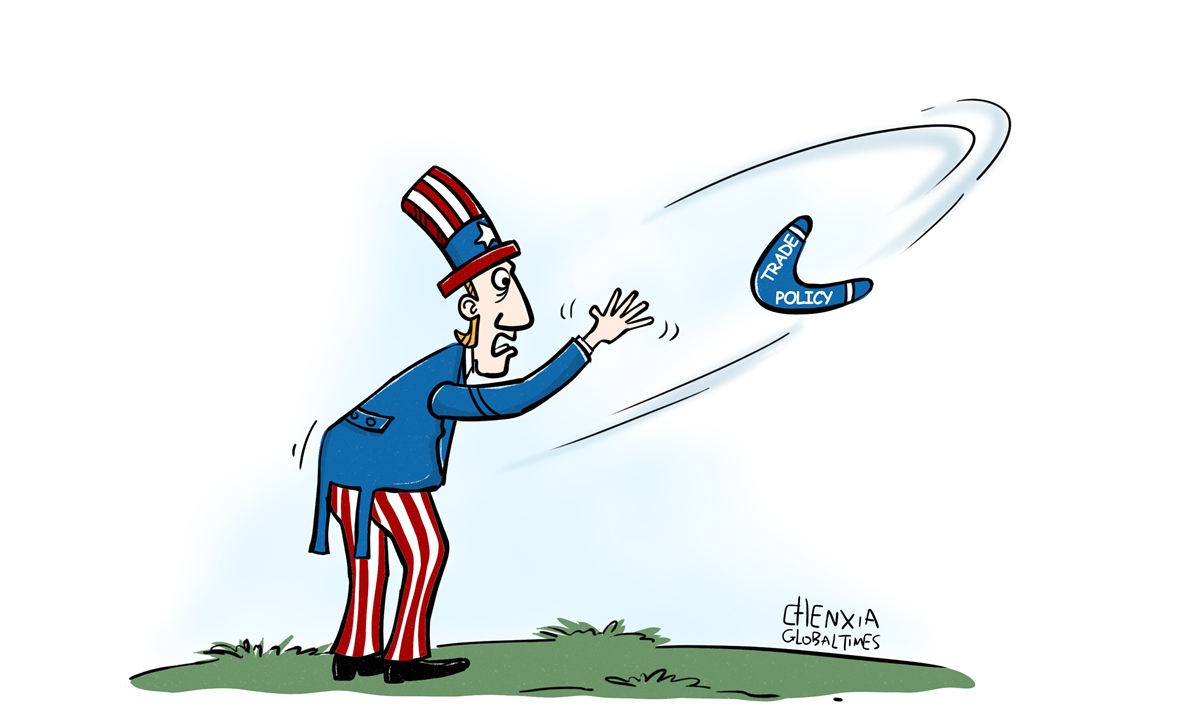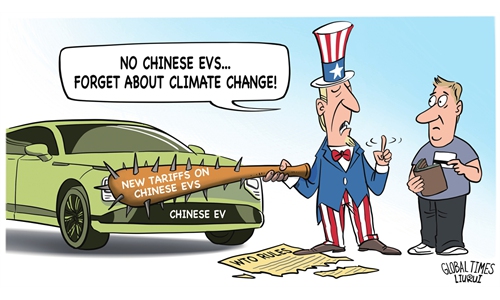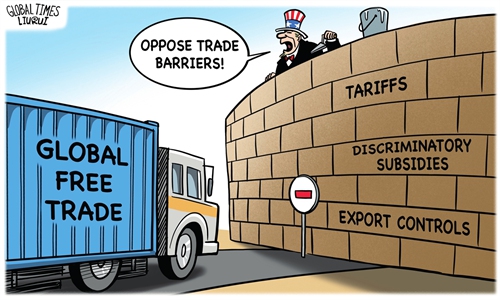
Illustration: Chen Xia/Global Times
How can the China-US relationship become the most crucial bilateral relationship globally, and potentially shape the future of the world? To address this query, the discussion of China-US economic and trade ties is essential. The two parties often refer to them as an "anchor."
However, the position of this "anchor" has changed. It's being slowly pulled out and facing the danger of being completely uprooted.
The calls in the US to revoke China's Permanent Normal Trade Relations (PNTR) status, first granted by the US in 2000, are growing louder. The resurgence of protectionism to China's manufacture, represented by G7, has added to concerns among the global trade community.
When China joined the World Trade Organization (WTO) on December 11, 2001, the US granted it PNTR, effectively giving China the Most Favored Nation (MFN) status. It marked a turning point, propelling US-China trade from $121 billion in 2001 to $664 billion by 2023.
It's easy for some to see this move as a favor to China. Indeed, we occasionally see such views from policymakers in the motivations for US decision-making on China. They rarely talk about the huge profits that US companies are making in the Chinese market, or the fact that China's exports have helped curb US inflation and fuel economic growth. Both nations have reaped benefits, ensuring unprecedented stability and contributing to global peace and prosperity. This is why the economic relationship has been described as an anchor of stability.
According to the Brookings Institution, "China has leveraged its role in global trade to become a vital part of international supply chains." At the same time, the US Chamber of Commerce notes that US-China trade supports 2.6 million American jobs.
This resilience is due to mutual economic complementarity, crucial supply chain positions, market demand and sheer economic scale, with businesses and consumers opting for cost-effective, high-quality and reliable trade flows between the US and China.
Despite the trade war initiated by Trump in 2018 and Biden's continued efforts to decouple and reconfigure supply chains, with new tariffs on $18 billion worth of Chinese goods, including a 100% tariff on electric vehicles, the trade between the two giants remains the world's most important, an anchor of the world trade system.
Revoking MFN status means higher tariffs on Chinese goods, raising prices for American consumers and businesses. It would also disrupt supply chains, forcing US companies to seek costlier alternatives and risk interruptions. As per a CNBC report, "US companies could face increased production costs and delays, leading to a potential rise in consumer prices."
Furthermore, China might retaliate, imposing higher tariffs on American exports, particularly hitting US agriculture, technology and manufacturing sectors that rely on the Chinese market. Such a move would echo the detrimental impacts of the trade war, as noted by the American Farm Bureau Federation: "Tariffs on American products have slashed agricultural exports to China, costing US farmers billions in sales."
While seeking new trade partners sounds plausible, replacing China's role in manufacturing and as a consumer market is unrealistic. A Peterson Institute for International Economics study suggests that "diverting trade away from China would require significant time and investment, which could disrupt supply chains and increase costs for American businesses and consumers."
Trade policy isn't just economics; it's diplomacy. Canceling China's MFN status would strain China-US relations, jeopardizing cooperation in other areas. It would also undermine the fundamental principles of the WTO and destabilize the global trade order, effectively starting an economic war. Retaliation from China would be inevitable.
In essence, the economic and trade relations between China and the US are either win-win or lose-lose. Washington's unilateral desire to win is a strategic fantasy detached from reality. If the US revokes China's most-favored-nation status, it will have a significant impact on China-US relations, and ultimately result in a reckless collision with a brick wall.


